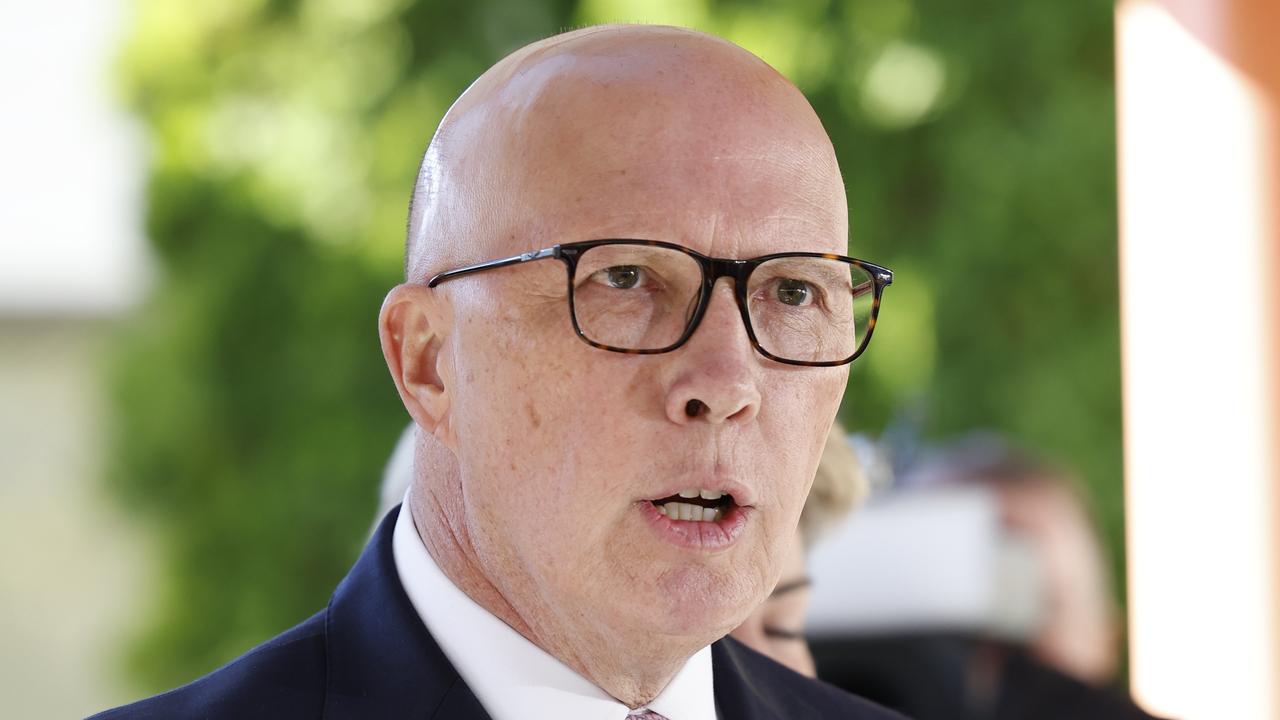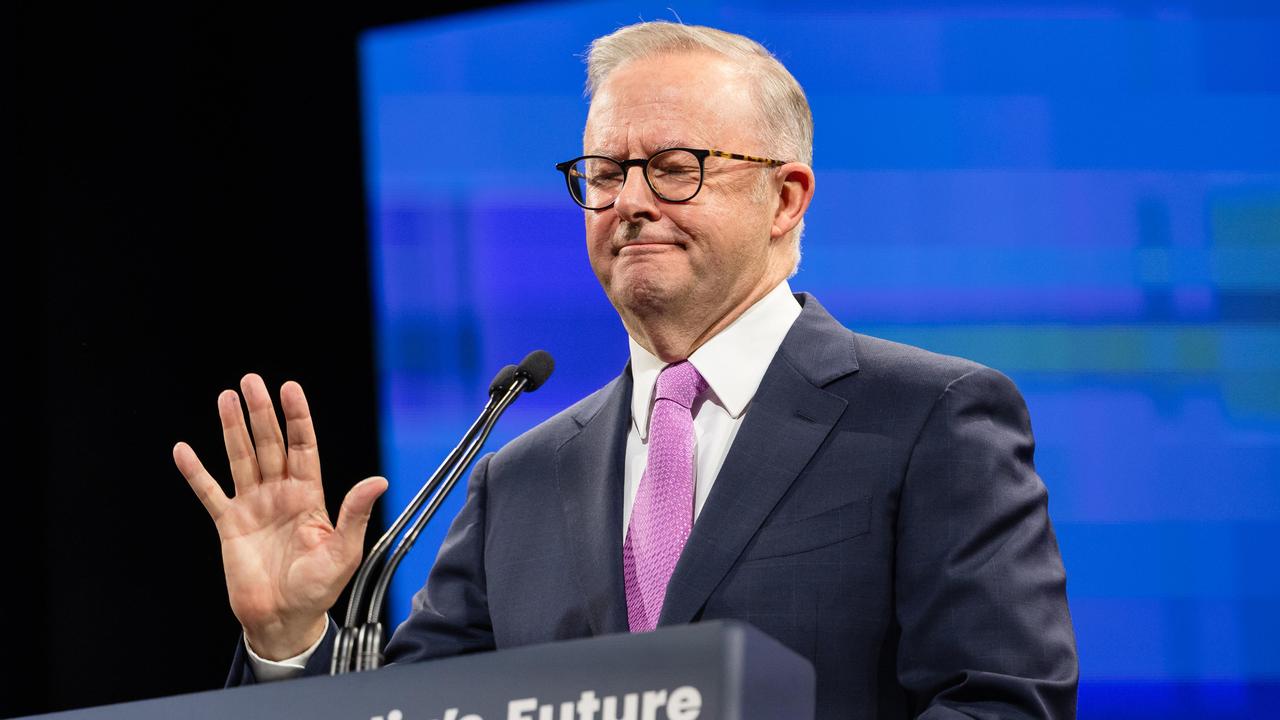James Campbell: Will Dutton survive the test of the Teals in Victoria?
The first test of whether the ‘Teal-slide’ was a one-off or the start of a permanent break-up between rich voters and the Liberals will be in Melbourne on Saturday.

James Campbell
Don't miss out on the headlines from James Campbell. Followed categories will be added to My News.
Next week’s Victorian state election will be watched closely in Canberra, but not for the outcome of the battle between Labor’s Daniel Andrews and his Liberal challenger Matthew Guy.
While most people accept that fed-world sometimes influences state elections, the general consensus is that after eight years in office this one’s all about Dan.
Certainly Anthony Albanese has shown no interest in inserting himself — he hasn’t been down to the People’s Republic of Victoria since the caretaker period began.
Whether this is because he thinks Comrade Dan has things in hand and doesn’t need any of the Albo magic to rub off on him, or because he thinks it’s not in his interest to be seen next to a Premier whose time is past, we will find out next Saturday.
The battle that Canberra has its eye on is the one between the Liberals and Teals.
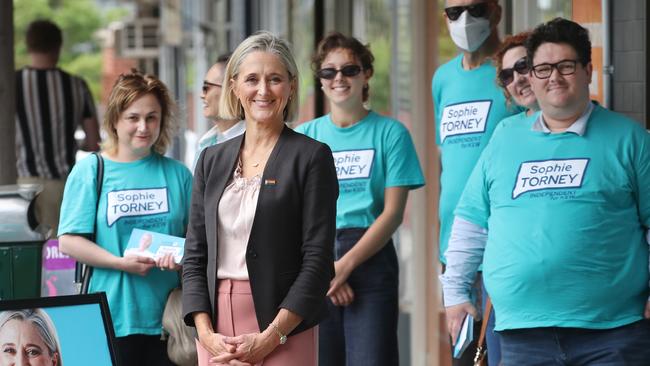
The reason isn’t hard to discern.
In May, Liberals around the country copped beltings from Teal candidates in seats that had once made up their party’s heartland.
Six months later and the Teal wins in the Victorian seats of Kooyong and Goldstein, Curtin in WA, and the NSW seats of Mackellar, Warringah and Wentworth as well as Kylea Tink (who doesn’t use the colour) in North Sydney are still sinking in.
The hope among some Liberals is that these losses were the result of a list of special circumstances which will make it difficult for their opponents to repeat these victories.
Among the one-off reasons for the “Tealslide” are the previous government’s lack of action on climate change, its reluctance to introduce a federal anti-corruption commission, its flat-footed handling of a number of scandals which outraged women voters — especially professional women voters — and the longevity of the government.
And Scott Morrison.
Metropolitan Liberals are hoping that by the time we go to the next federal election, none of these issues will be hanging round their neck.
The NACC will be a fact of life, the climate wars — fingers crossed — will be in the rearview mirror, as will the Jenkins report and the events that triggered it.
And Scott Morrison won’t be around any more.
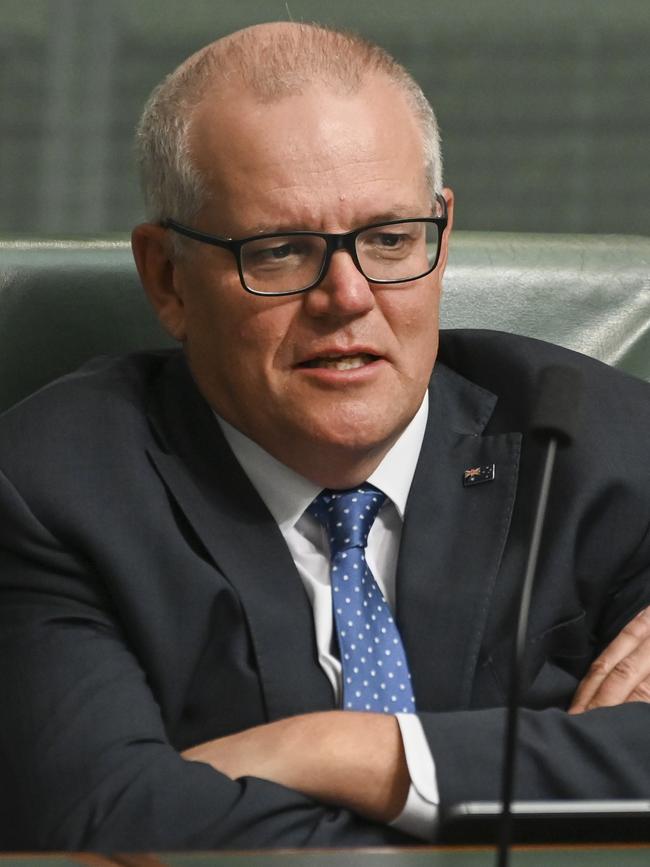
Discounting the re-election of Zali Steggall in Warringah, for which you could argue special circumstances applied, the first test of whether May was a one-off or the start of a permanent break-up between these rich voters and the Liberal Party will be in Melbourne next Saturday. On the face of it the Liberals have reason to believe the results in Victoria’s Teal-land won’t be as bad as they were at the federal election.
For starters, the candidates aren’t as good.
And though they have benefited from campaign infrastructure left over from May, they haven’t had the same time in the field their federal counterparts had.
They’re also labouring under the handicap of the Victorian government’s new donation caps which have made it harder for “independents” to raise money.
And they don’t have Scott Morrison to campaign against.
Instead, they’re defending accusations they’ll be the cat’s paws of an eight-year-old government increasingly mired in scandal.
For these reasons a Teal flop next Saturday won’t be as much of an indicator of the likely fate of the Teals at the next federal election.
But, if even with all the impediments listed above, they still do well by winning or running the Liberals close in some of the most expensive parts of Melbourne, then expect alarm bells to start ringing loudly in Canberra.
Because it will be clear as mud that the Liberal Party’s problems with a large slab of the Australian upper class and upper-middle class go a lot deeper than their dislike of Scott Morrison.
And if this is repeated again at the NSW state election next March at which a 12-year-old conservative government will be asking the punters for another four, those alarm bells are going to become deafening.
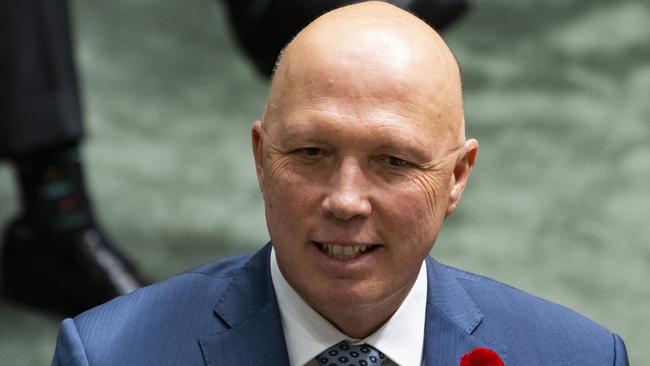
Luckily, with his subtle turn of phrase and air of metropolitan sophistication, the Liberal Party has found just the man in Peter Dutton to return professional upper-middle-class women to the fold.
Sorry, I couldn’t help that.
It’s not Dutton’s fault, of course. He is what he is, which appeals to some people and repels others.
There are reasons he didn’t beat Morrison for the leadership in 2018, however, and one of them was the view of metropolitan MPs in Sydney and Melbourne that he would be toxic in their seats.
The difference between 2018 and his rise to leadership earlier this year was that so many of these MPs weren’t there to vote because they’d lost their seats.
Paradoxically, a strong Teal performance next Saturday and repeat dose next March could actually strengthen Dutton’s position because some will argue it shows these voters are gone for good.
On the other hand, if the Teals underperform, expect voices to be raised saying the results show they’re not hostile to the Liberal Party per se — and perhaps we need to find a leader to whom they will listen.


